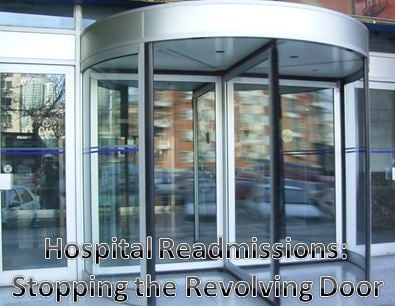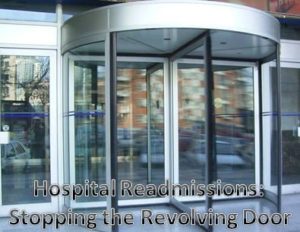Key Factors in Ensuring a Safe Return Home for Hospitalized Patients
A big focus in healthcare reform has been saving costs due to hospital readmissions. Clearly, there are some ways to make our systems and processes work better to reduce avoidable and costly problems. Of course, there are also complicating factors and real challenges for hospitals, providers and patients in effectively producing change. Though healthcare entities will be making improvements, you play a vital role as your own advocate (or helping someone) in the process. Understanding things before you are in a crisis can better help you to ask the right questions and ensure a more successful outcome.
The National Transitions of Care Coalition identified several key factors of a successful discharge. We will look at a few of these from the perspective of the patient and advocate.
Medication management
Medication regimes are almost always changed during/after a hospital stay. The doctor who follows the patient in the hospital is often not his/her usual community doctor, so there may be inconsistencies and miscommunication in this process. This can be especially confusing for a patient, who returns home with a new routine to learn, with possible confusion between new and old medications. A patient may receive Medicare Home Health assistance, where a nurse may visit to educate on new medications, but sometimes that visit does not occur for a couple days. Even simple tasks like getting new medications filled may not be easy for a patient living alone.
Transition planning
What most surprises families we talk to is how they feel caught unprepared for discharge and confused with the transition process. They often expect there will be a longer time to prepare and plan for after-care. The day of discharge (and period immediately following) may bring confusion over when the patient will leave, what services and equipment will be coming in when and what to expect during this period. The hospital may ascertain that there is a family member available to help, but that family member may not realize how difficult it will be to provide care to a recuperating patient along with managing transition tasks (just ask anyone who has tried to balance running to get food and prescriptions while ensuring the safety of a sick, and often heavily medicated, patient).
Patient/family engagement and education
As mentioned above, it is often difficult to understand what to really expect immediately after discharge. You may be given some basic instructions but you don’t know what kind of unknowns you will encounter or what to watch for (and what to do when you notice a problem). As a caregiver, even when you take notes and are given written instructions, it can be difficult to process at a time when you are also worrying a lot. Imagine how much more challenging this is for a patient who will return home alone, and is trying to take in all this information while ill.
Follow-up care
Follow-up needs in the time immediately following discharge are quite often underestimated. Patients are now discouraged from remaining in bed with no exercise during hospital stays, but are typically still in a weakened state. New medications may cause problems and falls are a common safety hazard. Even when a patient has a family caregiver who can be present to help, patient and caregiver may benefit from some extra support. While patients may receive Medicare home health care, the patient and family often need more constant care during the initial period, such as that offered by a private duty company like EasyLiving.
The Affordable, Comprehensive Solution: EasyLiving‘s Transition of Care Packages
To help patients ensure safety after discharge, we offer Transitions of Care packages. These packages help cover the vital areas discussed above, by getting the patient home safely and managing initial needs. The caregiver is there to provide care in the “danger zone”, helping with medication management/reminders, meal preparation, errands, bathing and hygiene, safe transfers to avoid falls. The caregiver helps set up a safe, comfortable environment for the patient’s recovery.
When our Senior Care Consultant is contacted about a patient needing help, she sets our staff in motion to prepare to quickly help with discharge needs. We get the instructions and monitor the process, in case unforeseen issues arise or the client/family has any problems or questions. Families should also consider engaging our Aging Wisely patient advocates early in the hospitalization, to anticipate discharge needs for transition planning. They can ensure you and your loved one understand all the options and get all the answers you need.Contact us at 727-447-5845 for help today, or to learn more.








